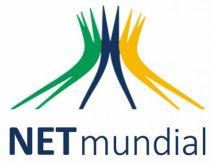India to present proposal to rename the Internet as "Equinet" at NETmundial event

India will present a proposal to rename the Internet as the "Equinet" at the Global Multistakeholder Meeting on the Future of Internet Governance or NETmundial to be held in Brazil on April 23 to 24.
The organization representing India in this conference, NETmundialIndia, wants to rename the Internet to give nations an equal say in the operations of the World Wide Web. It wants to banish the perception the Internet is controlled by a single country: the USA.
NETmundialIndia claims this move will decentralize the operations of the World Wide Web. Doing this will give all countries will have an equal say and deprive the United States of the great power it allegedly has over the Internet.
Sources said the idea of the Equinet first came from Kapil Sibal, India's communications minister, during an Internet Governance Forum in Azerbaijan in 2012.
"Equinet means an equitable Internet, which plays the role of an equalizer in the society and [is] not limited only to the privileged people," said CEO Dr. Govind of the National Internet Exchange of India.
Others, however, oppose the idea of the Equinet. Sivasubramanian Muthusamy, president of Internet Society India in Chennai, said the Equinet isn't achievable.
"Totally wrong idea," he said. "The Internet provides a level playing field already. It is designed and operated to be universally accessible, free and open. Internet as it is operated today offers the greatest hope for developing countries to access global markets and prosper."
NETmundial, which will be held in Sao Paulo, will to discuss principles on Internet governance and a road map for evolving the Internet Governance Ecosystem. Brazil is expected to present a proposal for an international "Internet Bill of Rights" at the event.
NETmundial will gather representatives of the private sector, civil society, academia and the world's technical community who will aim to "produce universal Internet principles and an institutional framework for multi-stakeholder Internet governance."
The proposal will be a compilation of the most relevant suggestions from a total of 188 entries received by 46 different countries. The suggestions were sent by civil society representatives, private sector, academia and the global tech community.